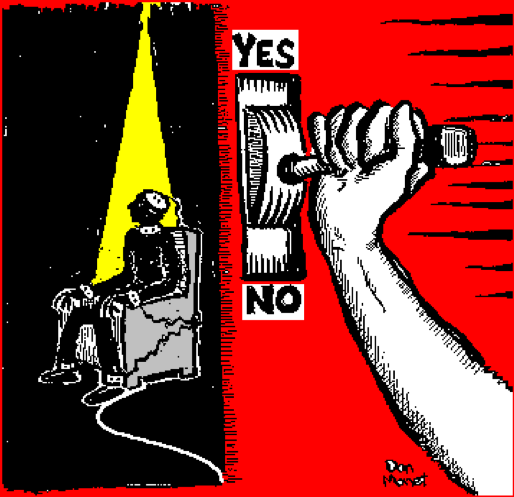The recent execution of convicted Indian criminal or terrorist Yakub Memon for involvement in Mumbai bombings in 1993 has ignited a bit of a debate in India about the death penalty. It is healthy to see that at least people are debating this issue in the mainstream, which itself is reflective of how democracy is at a much healthier state in India, as compared to a society such as Pakistan. However, what is alarming is that apparently most of the Indians are as keen on hangings as Pakistanis and Iranians.
But even more troubling than the vicious righteous mobs thirsting for blood as justice is the convenient positions some politicians are taking about death penalty when it suits their agenda. Of course, it’s not Shahshi Tharoor that I am talking about, whose views on the issue I absolutely endorse and support. The very opposition to his comments is reflective of how far they need to go in terms of fighting social conservatism in India, which has worsened ever since the BJP took power.
What I am really talking about is Muslim religious conservatives and Islamist leaders complaining about the death penalty. While this could apply equally to Hindu right wing social conservatives, such inconsistency is more evident among their Muslim counterparts, especially because they otherwise support the most barbaric of punishments for insignificant offenses such as adultery.
The AIMIM chief Asaduddin Owaisi refreshingly criticized the execution of Yakub Memon, saying that capital punishment is not the answer to terrorism. It sounds pretty nice until he brings up the Babri Mosque incident and talks about how there were no hangings for the “original sin.” He probably makes a valid remark about any lack of convictions for the Mumbai riots, but it is not because he actually opposed the death penalty as a matter of principle. He was just upset because he just didn’t want Memon hanged, one of his own tribe. Obviously his stance saw retaliation by your typical idiotic BJP nationalists, the rival tribe, and one of the ministers asked the critics of death penalty to “go to Pakistan.”
This has not happened for the first time. If you recall, Bangladesh has sentenced quite a few Jamaat-e-Islami leaders to death for treason. And then the Egyptians sentenced many Muslim Brotherhood members to death, including the deposed Prime Minister Mohammed Morsi. Considering the connection between the parties, the Jamaat-e-Islami in Pakistan passionately protested against the harsh and cruel death sentences.
Now I totally support the right of the Jamaat-e-Islami to protest, of course as long as they behave themselves, and I agree with them on the issue, but it is interesting how they would themselves call for similar penalties, or worse Shariah sanctioned punishment, for similar and other offenses. All the Muslim Brotherhood members in Egypt and Bangladesh were tried and sentenced for anti-state activities and treason, which can be argued not to be crimes, but sadly they are considered to be. These entities themselves would support death for rebellion against religion, and would support putting apostates and blasphemers to death.
This is why supporting the abolition of capital punishment is so important.
Now secular liberals and libertarians who oppose authoritarianism and capital punishment would oppose the rulings made in Egypt and Bangladesh consistent with their ideology. They would agree with Jamaat-e-Islami on these issues, but not necessarily for the same reasons. The only converging reason could be that the charge is not worthy of such a penalty in the first place.
But the important point here is that Islamists and social conservative Muslims need to examine their political positions pertaining to the death penalty. Because their convenient positions on the issue would qualify for something they despise and often accuse their opponents of. Hypocrisy.
Now, while pretty much every political entity is guilty of cherry picking and double standards in one way or another, minimizing such positions is good for their own public image. They need to embrace comprehensive rejection of death penalty.
One of the most fundamental things to understand about opposing capital punishment on the basis of morality is that you don’t want the state to commit the crime it is convicting someone for, in addition to the idea why the state should not be resorting to such extreme measures in the first place. You don’t have to turn criminals and murderers to punish them. Digging further into the debate, liberals present the argument that there is no evidence to suggest that death penalty serves as an effective deterrent to crime.
Perhaps the only solid and worthwhile, though inhuman and heartless, argument that I have heard from conservatives for the death penalty is why they should be paying to keep the convicts alive. Though then someone can argue why keep prisoners alive at all. Why not burn everyone at stake at even the most minor of offenses, just because we should not bear the burden of convicted citizens. Alright don’t burn at stake, just shoot them, or the lethal injection would do.
Many of the liberals who have evolved their position on death penalty must have started from supporting capital punishment. Similarly, many liberals change their minds and end up supporting the capital punishment as they grow old as well.
What the critics of the opponents of death penalty need to understand is that the state does not set a good example when it resorts to the very actions that it is condemning its citizens for. Furthermore, putting someone to death does not necessarily help achieve the abstract state of “justice.” It does, however, fulfill the thirst for vengeance.






